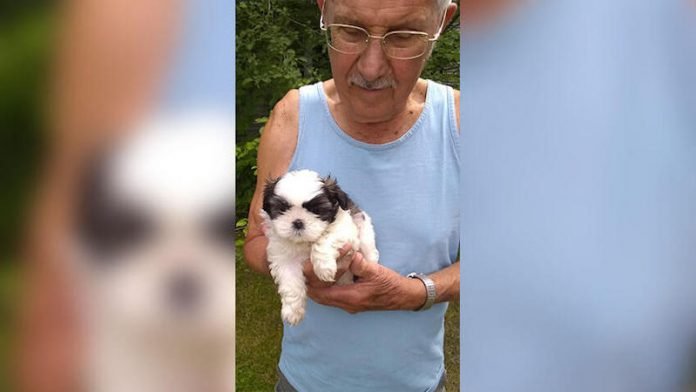
As COVID-19 vaccination moves forward, limiting the number of serious illnesses and deaths from this disease remains vital.
For those who are caring for someone with cancer or other conditions, protecting your loved one from COVID-19 is critical. Here’s one caregiver’s protector story.
Russel Barrette looks after his 89-year-old father, Russell, who is in treatment for bladder cancer. Not only are the pair worried about the toll of cancer and its treatment, but they must also keep safe from coronavirus.
Because the cancer treatments weaken his father’s immune system, Barrette has been very careful to wear masks and limit trips out.
He does all the grocery shopping and takes his dad to and from the Rogel Cancer Center for treatment.
“Keeping dad healthy, really, that’s my motivation,” Barrette says. “Just keeping him healthy and doing our part for the community.”
It’s not always easy. Barrette and his dad live in Cheboygan, Michigan, where jobs were scarce before the pandemic.
“After the pandemic began, I stopped looking for an outside source of income. It is far too dangerous for me to work and risk bringing home COVID to Dad. I might not be high risk, but Dad is,” Barrette says.
Barrette connected through the Department of Veterans Affairs to receive caregiver training certification.
This allowed them to get benefits through the VA’s family caregiver assistance program, which relieved a lot of their financial stress and health insurance concerns.
He also knows that his entire family is counting on him to care for his father. Three sisters live out of state, and initially they called and checked in constantly, needling Barrette about how he was protecting their dad.
“But they’ve come to see I’m doing everything that needs to be done. I know it was out of worry and out of love. It was still tough to hear though. I would take it to heart,” Barrette says.
“For those like Russ Barrette who are caring for someone with cancer or other conditions, protecting your loved one from COVID-19 is critical,” says Lawrence An, M.D., associate professor of general medicine at Michigan Medicine and co-director of the Rogel Cancer Center’s Center for Health Communications Research.
The isolation makes it hard as well. Barrette says he’s lost contact with a lot of people because he’s not seeing them face-to-face.
His father started woodworking, and Barrette built a workshop in the garage – with a heater so they can go out in the winter.
He’s been helping with painting the designs, and the pair hope to be able to display their work at craft shows over the summer.
They go out sometimes to stave off the boredom and help maintain their mental health. Barrette does a weekly shopping trip, and they keep their routine of breakfast, lunch and dinner times, to maintain a sense of normalcy.
They also got a puppy, a Shih Tzu named Bandit. “He’s the star of the house,” Barrette says. “He is a big part of our family and a wonderful part of mental health.”
“Many people are doing the right thing day-in and day-out in a quiet struggle to keep their loved ones safe.
These people feel isolated, tired and lonely – and the need to quarantine only amplifies that feeling,” An says. “These people should be celebrated for doing their part to stop coronavirus.”
In January, both Barrette men were approved to receive a COVID vaccine. They’ve now completed both vaccine doses.
The elder Barrette had his last chemotherapy treatment in February and is scheduled for follow-up testing this month.
“We are praying for a positive outcome,” Barrette says. “In the meantime, we continue to practice our safety protocols and keep busy with our projects. And Bandit is a huge stress relief for both of us.”
Written by Nicole Fawcett.



